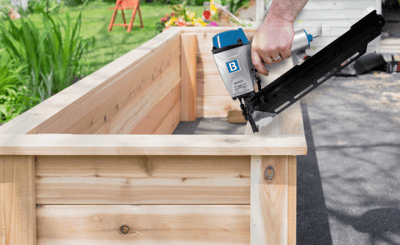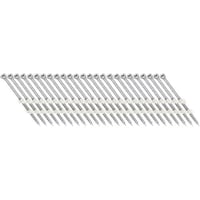The Importance of Efficient Box Stapling
Beginner and small-scale gardeners are responsible for the growing popularity of raised bed gardening. Building a raised bed allows you to keep your garden contained while controlling the quality of your soil. Below we’ll explore the best choices of wood to use for building your new garden beds.
Benefits of Using Cedar Wood
Cedar wood is a popular choice for raised garden beds due to its numerous benefits.
- It is naturally resistant to rot and decay, making it highly durable and long-lasting.
- The beautiful, natural color and grain pattern of cedar wood are aesthetically pleasing, making it a perfect choice to enhance the look of your garden.
- Cedar also has natural oils and chemicals that act as insect repellents, reducing the need for chemical insecticides that could harm your plants – and your body!
Advantages of Redwood for Raised Garden Beds
Redwood is another excellent choice for building raised garden beds, offering several advantages.
- One of the main advantages of redwood is its natural resistance to decay, insects, and rot. This makes it highly durable and suitable for use in outdoor settings.
- Redwood is also known for its dimensional stability, meaning it is less likely to warp or shrink over time. This ensures that your garden beds maintain their shape and structure.
- Redwood is another wood that has a beautiful natural color and grain pattern, providing an attractive aesthetic to your garden.
Why Douglas Fir is a Great Option
- Known for its strength and durability, making it a reliable option.
- Douglas fir has a natural resistance to decay and insects, ensuring the longevity of your raised beds.
- It is readily available and affordable, making it a cost-effective choice for gardeners.
- Douglas fir has a beautiful reddish-brown color and a straight grain, adding an attractive and rustic look to your garden.
Overall, Douglas fir is an excellent option for raised garden beds, offering strength, durability, affordability, and an appealing aesthetic.
Considerations for Pine Wood in Garden Bed Construction
Pine wood is a popular choice for raised garden beds due to its affordability and budget-friendliness. But there are a few considerations to keep in mind.
- Pine is less durable than cedar, redwood, or Douglas fir, and it is more susceptible to rot and decay. To increase the lifespan of pine wood raised beds, it is recommended to treat them with a wood preservative or paint them with a waterproof sealant.
- Pine may have more knots and a less uniform appearance compared to other woods.
Despite these considerations, pine wood can still be a viable choice for raised garden beds, especially for those on a budget.
Other Alternative Wood Choices for Raised Garden Beds
While cedar, redwood, Douglas fir, and pine are popular choices, other alternative woods can be used for raised garden beds. Let’s review some of the alternatives.
- Cypress wood - is naturally resistant to decay and insects. It has a beautiful grain pattern and a light-yellow color, adding a unique aesthetic to your garden.
- Juniper wood - is highly durable and resistant to rot. It has a distinct reddish-brown color and a pleasant aroma.
- Oak wood - offers strength and durability. Oak has a rich grain pattern and a light to medium brown color.
When considering these alternative wood choices, it is important to ensure they are sustainably sourced and suitable for outdoor use.
As we’ve seen here, there are various wood options available for raised garden beds, each with its unique qualities and characteristics. If you’re considering building your own raised bed, keep in mind that choosing the correct materials is crucial. After choosing the correct wood for your project you’ll want a high-quality fastener, such as SCRAIL®, by BECK. The SCRAIL® family of nail screw fasteners combines the advantages of both fastening worlds – fast processing, maximum holding power, and full flexibility. Using SCRAIL® you can ensure your structure is built to last for many years to come.
unique qualities and characteristics. If you’re considering building your own raised bed, keep in mind that choosing the correct materials is crucial. After choosing the correct wood for your project you’ll want a high-quality fastener, such as SCRAIL®, by BECK. The SCRAIL® family of nail screw fasteners combines the advantages of both fastening worlds – fast processing, maximum holding power, and full flexibility. Using SCRAIL® you can ensure your structure is built to last for many years to come.
.svg.png)

